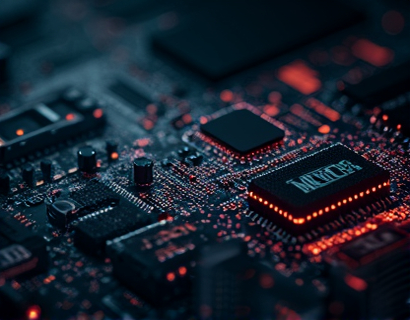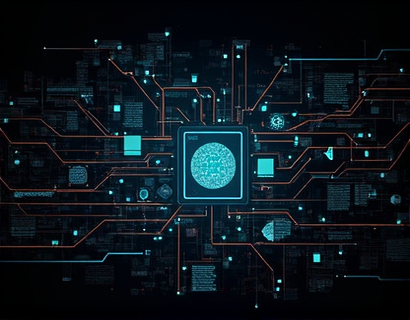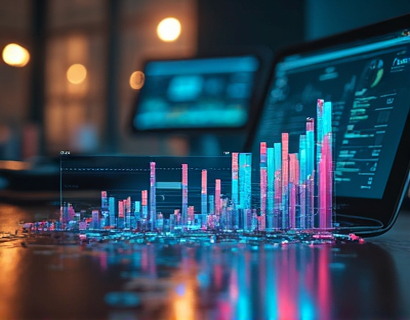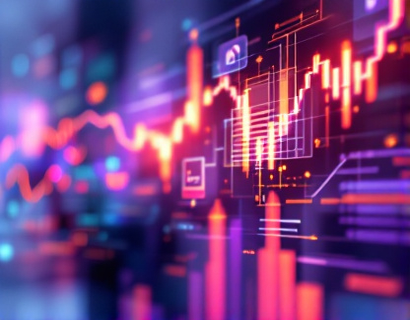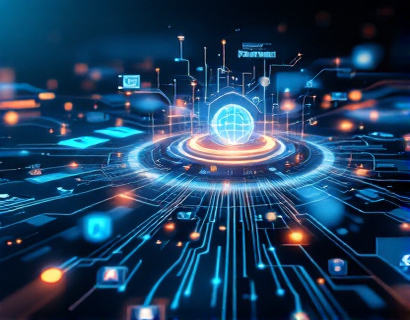Optimizing DeFi Trading with Next-Gen Smart Contract AMMs
In the rapidly evolving world of decentralized finance (DeFi), the integration of advanced smart contract-based Automated Market Makers (AMMs) is revolutionizing the way crypto traders and DeFi enthusiasts manage liquidity and execute trading strategies. This article delves into the cutting-edge technology behind these next-generation AMMs, exploring how they optimize liquidity management and automate trading processes to ensure seamless and efficient market interactions.
Understanding Smart Contract AMMs
Traditional AMMs have been a cornerstone of DeFi, providing liquidity to decentralized exchanges without the need for order books. However, next-gen smart contract AMMs take this concept to a new level by leveraging advanced algorithms and smart contract capabilities. These AMMs are designed to dynamically adjust to market conditions, offering enhanced liquidity provision and more sophisticated trading strategies.
At the core of these smart contract AMMs is the use of decentralized protocols that allow users to deposit assets into liquidity pools. These pools are managed by smart contracts, which execute trades based on predefined rules and algorithms. The key advantage here is the elimination of intermediaries, reducing costs and increasing transparency.
Enhanced Liquidity Management
One of the primary benefits of next-gen smart contract AMMs is their superior liquidity management capabilities. Traditional AMMs often suffer from liquidity provision challenges, where providers may face slippage or insufficient funds during high-volume trades. Next-gen AMMs address these issues through several innovative features:
- Dynamic Fee Structures: These AMMs implement adaptive fee structures that adjust based on market conditions. During periods of high volatility or low liquidity, fees can increase to attract more liquidity providers, ensuring that the market remains efficient and fair.
- Automated Liquidity Rebalancing:
- Cross-Chain Liquidity:
Smart contracts can automatically rebalance liquidity pools to maintain optimal depth and width. This ensures that traders have access to sufficient assets for their transactions, reducing the risk of price impacts and improving overall market functionality.
Next-gen AMMs support cross-chain liquidity, allowing assets to be transferred and traded across different blockchain networks. This feature enhances liquidity by tapping into a broader range of assets and markets, providing traders with more options and flexibility.
Automated Trading Strategies
Automation is a key differentiator of next-gen smart contract AMMs. By integrating advanced algorithms and machine learning models, these platforms can execute complex trading strategies with minimal human intervention. Some of the automated strategies include:
- Arbitrage Opportunities:
- Risk Management:
- Algorithmic Trading:
Smart contracts can continuously monitor multiple DEXs and exchanges to identify and exploit price discrepancies. By automatically executing trades across different platforms, these AMMs ensure that traders capture maximum profits from arbitrage opportunities.
Automated risk management tools can set predefined stop-loss and take-profit levels, adjusting positions in real-time based on market movements. This helps traders manage their exposure and minimize potential losses.
Next-gen AMMs support algorithmic trading strategies, such as mean reversion, momentum trading, and trend following. These strategies are executed through smart contracts, allowing for precise and consistent trade execution without the need for constant human oversight.
Improved User Experience
The integration of advanced smart contract AMMs not only optimizes liquidity and trading but also significantly enhances the user experience. Here are some ways in which users benefit:
- Seamless Integration:
- Real-Time Data and Insights:
- Enhanced Security:
Next-gen AMMs are designed to integrate smoothly with existing DeFi protocols and wallets, providing a cohesive and user-friendly experience. Users can easily deposit, withdraw, and manage their assets without the need for complex setup processes.
These platforms offer real-time market data and analytics, giving traders valuable insights into market trends and asset performance. This information helps in making informed decisions and adjusting strategies on the fly.
Smart contract AMMs are built with robust security protocols, including multi-signature wallets and regular audits. This ensures that user funds are protected and that the platform operates transparently and reliably.
Challenges and Considerations
While next-gen smart contract AMMs offer numerous advantages, there are also challenges and considerations that users should be aware of:
- Smart Contract Risks:
- Regulatory Uncertainty:
- User Education:
As with all DeFi protocols, smart contracts are susceptible to bugs and vulnerabilities. It is crucial for users to choose platforms that have undergone thorough audits and have a strong track record of security.
The DeFi space is still navigating regulatory landscapes, and the legal status of smart contract AMMs can vary by jurisdiction. Users should stay informed about local regulations and ensure compliance.
The complexity of smart contract AMMs requires a certain level of technical understanding. Platforms should provide comprehensive documentation and educational resources to help users get started and make the most of their features.
Future Prospects
The future of DeFi trading is bright, with next-gen smart contract AMMs poised to play a pivotal role. As technology continues to advance, we can expect even more sophisticated features and integrations:
- Interoperability:
- AI and Machine Learning:
- User-Centric Design:
Enhanced cross-chain capabilities will allow for seamless asset movement and trading across multiple blockchains, creating a more interconnected DeFi ecosystem.
Further integration of AI and machine learning will enable more intelligent and adaptive trading strategies, optimizing performance and reducing human error.
Future AMMs will focus on user experience, making complex trading tools accessible to a broader audience and demystifying DeFi for newcomers.
In conclusion, next-gen smart contract AMMs are transforming the DeFi landscape by optimizing liquidity management and automating trading strategies. These platforms offer enhanced features, improved security, and a superior user experience, making them an essential tool for crypto traders and DeFi enthusiasts. As the technology continues to evolve, the potential for innovation and growth in the decentralized finance space remains vast.






